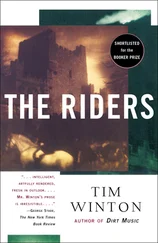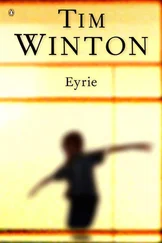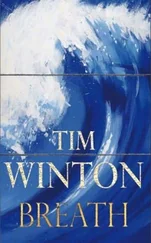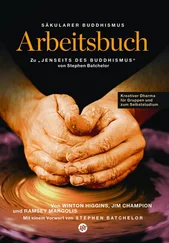She’s ad enough kids, said the women of the street.
She’s caught him out, said the blokes.
But the real reason remained a mystery, even to Oriel Lamb. It wasn’t actually one thing that’d moved her. The pig, the sound of middle C ringing in her ears, the sudden claustrophobia of the house, the realization that Fish didn’t even know her, and the feeling she had that the house was saying to her: wait, wait. She didn’t know, but, whatever else she was, Oriel wasn’t the sort to argue with a living breathing house.
V. A Combustible Material
By the time he was sixteen, Quick Lamb was taller than his father. He was a fairskinned, melancholy boy, slim and a little cagey around the ribs but robust in his own way. He loved to walk and to fish, to be out on the water in the shadow of the brewery or anchored out from the Nedlands jetty. It was so much more peaceful than the teeming house where there was always some fit of yelling, some quiet tussle, some jostling spectacle in progress. The sun tended to turn his skin to bark in an hour, so he rigged up a longshafted umbrella he’d found in a bin outside the university and fixed it to an old rod belt strapped to his waist and it gave him the feeling of rowing with a small cloud always overhead. He smeared his face and arms with zinc cream, and the overall effect failed to render him inconspicuous.
The river was broad and silvertopped and he knew its topography well enough to be out at night, though the old girl would have had a seizure at the thought. He never got bored with landmarks, the swirls of tideturned sand, armadas of jellyfish, the smell of barnacles and weed, the way the pelicans baulked and hovered like great baggy clowns. He liked to hear the skip of prawns and the way a confused school of mullet bucked and turned in a mob. From the river you could be in the city but not on or of it. You could be back from it out there on the water and see everything go by you, around you, leaving you untouched. Cars swept round Mounts Bay Road beneath Mount Eliza where Kings Park and its forest of war memorials presided over the town. With an easterly rushing in his ears, he often watched the toffs picnicking by the university. He saw their sporty little cars, their jingling bicycles, and he wondered what they were, those university people. They came into the shop now and then on a Saturday, stopping for some forgotten thing for the picnic hamper, or seeking out the icecream the old man was known for. Quick looked into their faces and wanted to know how they could bear so much school.
School just gave Quick Lamb the pip. He was too slow to get things right the first time and too impatient to force himself to learn. For a while he was an army cadet, a soldier under the command of mathematics teachers who exchanged the steel rule for the brass ended baton and who liked the sound of both on a set of knuckles. In the cadets Quick learnt to shoot and also to crap with the aid of one square of shiny paper. He loved the khaki serge of battledress and the smell of nugget in the webbing, and he loved to shoot because he was good at it. He could see a long way, pick things in the distance that others couldn’t, and the two hundred yard target seemed close to him, only a barrel length away. In the end, even Quick knew the only reason the school kept him on at all was to win rifle trophies for it. Sometimes, after a shoot, he’d see the whole world through a V. There was only ever one teacher Quick Lamb could talk with, but he was the sort of man who winced when you brought up your shoot scores, or rolled his eyes when you spoke warmly of a Bren gun. His name was Krasnostein and he had a limp. He taught history and he liked to have the class in an uproar of debate and discussion. He had the sort of dandruff that found its way into your books and papers and his teeth were like burnt mallee stumps. When he breathed on you, there was no telling how you’d behave.
Quick almost never spoke in class discussions. He could never get out what he wanted to say in time. Mostly he felt breathless and confused, sometimes furious with Mr Krasnostein who baited them all about the Anzacs and the Empire. Yet there was laughter allowed, even out-spokenness. After one class Krasnostein kept Quick behind. Itching with dread, Quick stood by the little man’s desk.
You have lovely handwriting, Mr Lamb, but I’m afraid your essay is anything but lovely.
Sorry, sir.
The teacher sucked his moustache and smiled. You must remember that the West Australian and the Western Mail are not final authorities on history. Nor is what you hear over the back fence. Do you know any Japanese people?
No, sir.
No, I thought not. They really are more than just combustible material, Lamb. Do you know any Jews?
No.
Well you do now.
Quick looked him up and about. He felt his chin fall.
Here, Lamb, take these and read them over the weekend. If you’d like to change your essay afterwards let me know.
Quick went out lightheaded and he didn’t even glance at the two bundles until he got home. In his room he opened the crumpled old magazine, a New Yorker from 1945. The whole thing seemed to be about Hiroshima, which he’d mentioned in his own essay. Between pages were loose photographs of what looked like burnt logs or furniture, but when he looked close he saw the features of people. He put it down and picked up the small pamphlet. It was called Belsen: a record . He picked it up without thought. Inside were long lists, and photographs of great piles of … of great piles. Quick went downstairs and out the back where the mulberry tree had stained the old girl’s tent the colour of a battalion field hospital. Fish was out there talking to the pig. Corn stood chest high down behind the chicken wire. Next door Mrs Pickles was laughing drunk again.
After dinner Quick went back upstairs. He looked at the brittle, faded pictures he’d stuck on his walls years ago. He’d forgotten about them. Years ago he’d thought them the saddest, most miserable things he’d ever seen in his life and he kept them there to remind him of Fish, how Fish had been broken and not him. But even that punishment had worn off. Now he sat with pictures in his lap that were beyond sadness and misery. This was evil, like Mr Bootluck the minister used to go on about at the Church of Christ. Here were all those words like sin and corruption and damnation.
That night Fish crawled into his bed and Quick felt him like a coal against his skin.
Mr Krasnostein was not at school on Monday. In his place they had a strapping blonde man called Miller who looked like a wheat farmer. His eyes were the colour of gas and he read to them from the Yearbook, 1942 . Mr Krasnostein never returned. Quick kept the magazine and the little stapled book in his bag, tucking them inside the loose skirting board in his room when he got home. As he came out onto the landing he saw Rose Pickles by the window at the head of the stairs, and it struck him that her silhouette was just like something out of Belsen. He’d noticed she was getting thinner every week, and now, as she turned, her eyes stood out in her head enough to make him feel repulsed. Somehow it struck him as sickheaded for a pretty girl to starve herself like that.
Oh, it’s you, she said.
Quick said nothing at all. He was too choked up with disgust. He went down the stairs four at a time. He’d quit school — that’s what he’d do.
 Bones
Bones 
Rose watched him thump down the stairs, then she turned back to look out across the mulberry tree, but she couldn’t recall what it was that had caught her attention in the first place. Maybe it was just the yards, the fences containing other families, more secrets. She went back to her room and looked at herself once more in the mirror. AU her bones stood out. Her eyes crowded her face. She gave a grim smile and went down to cook the dinner.
Читать дальше
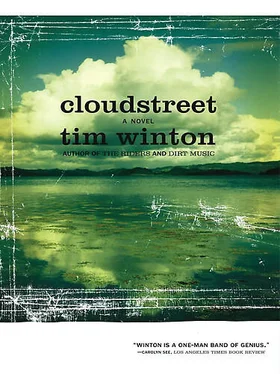
 Bones
Bones 

